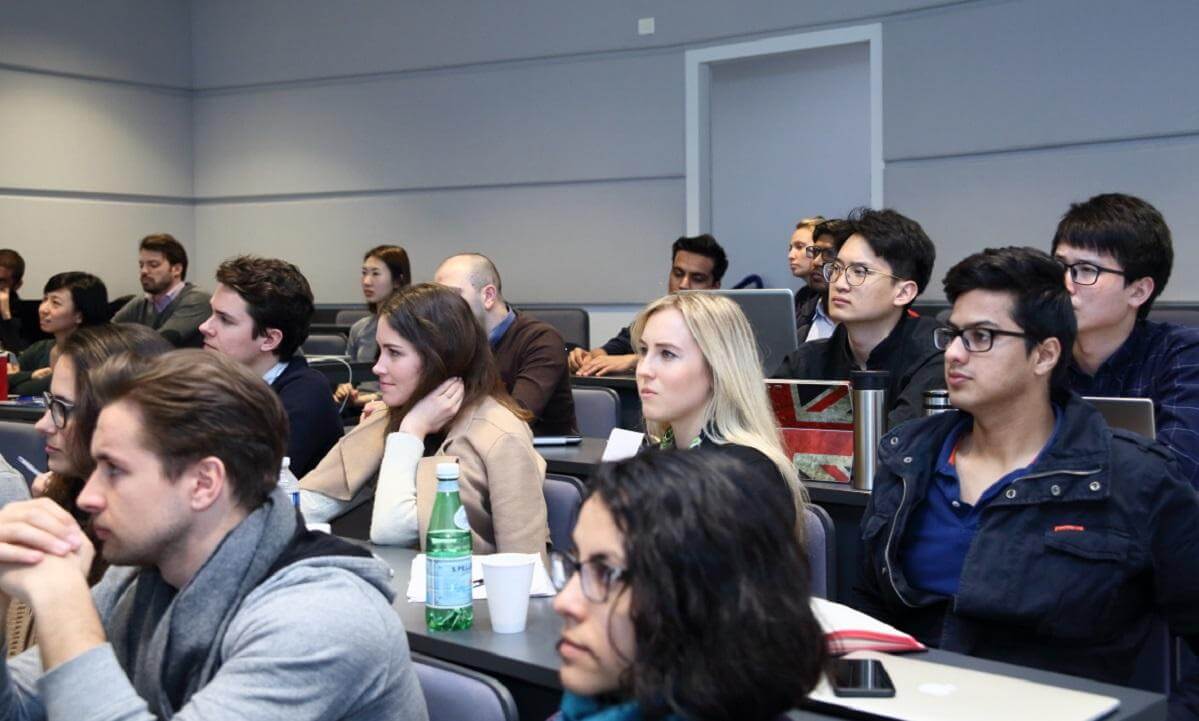RCI Bank and Services and ESCP Europe recently launched an international competition between 100 students at four campuses of the business school: Berlin, Paris, London and Madrid. The theme of the contest is the automotive mobility of under-30s. The students are currently finalizing their ideas before their local presentation in front of our jury at the end of May. We talked to them about their first impressions.
The competition was kicked off at local level at the end of March by experts from RCI Bank and Services on each campus. Since then, the Master’s in European Business (MEB) students have been working on the automotive mobility of under-30s in teams. Throughout this initial phase, the students are being coached in each country by their marketing professors. “My role is to help them to identify clear business opportunities for RCI Bank and Services, as they will need to convince the top management,” explains Boris Durisin, Associate Marketing Professor at ESCP Europe, Paris.
For the students, this business case is an ideal opportunity to apply what they have learned in their marketing class. “At first glance, most marketing theories appear to be 'common sense'. But reflecting on them and working on case studies across different industries and markets, we are able to recognize patterns and predict certain outcomes of marketing strategies,” says Nikolas, a German student at ESCP London. Each team consists of five or six students, which does not appear to be a problem. “All our courses are based on teamwork, so it is easy for us,” says Shreshtha from the Paris campus. “To be more effective, my team is divided into two groups, one working on customer trend analysis and the other on market benchmarking,” says Francesco, also from the Paris campus.

Shreshtha and Francesco share their impressions about the competitions with us.
The competition also changed the image the students have of the automotive as well as the banking industry. “I knew before that carmakers were I already knew that carmakers were investing in new technologies, but I didn’t know how far they had come, especially in carsharing and carpooling,” says Natasha from Canada, studying at ESCP London. “I regularly read up on the latest developments on self-driving cars, electro-mobility and connected cars. But the fascinating thing in the end is that it is the financial services sector that is delivering most of the marketable innovations in the automotive industry!” says Nikolas.
The main challenge for the students is clearly the under-30’s target: “Our age group places less importance on the idea of car ownership as a model of status; we see it more in terms of mobility, which has become the new form of status,” explains Natasha. Her Chinese classmate Yumin adds: “Customers aged under 30 do a lot of research on the Internet and social media before buying a new product or services.” So how to catch their attention? In Shreshtha’s opinion, “RCI Bank and Services needs to be in forefront. There are many competitors on the market, so it’s important to be innovative and come up with new ideas that match young people needs”.

Elina from Finland is currently studying in the Master’s in European Business program at ESCP Europe, Paris.
In the next phase of the competition, the students will prepare a one-minute elevator pitch[1], made to the local juries of RCI Bank and Services. “It can sounds difficult, but it’s a nice challenge. It is definitely something we will have to do in real life,” says Elina, a Finnish student on the MEB program (on the Paris campus). This challenge is one that the four winning teams will have to take up once again at the competition final in the presence of our Executive Committee mid-June.
[1] A succinct, vivid presentation to sell one’s idea to a potential investor or partner, as though in the space of a shared elevator ride


